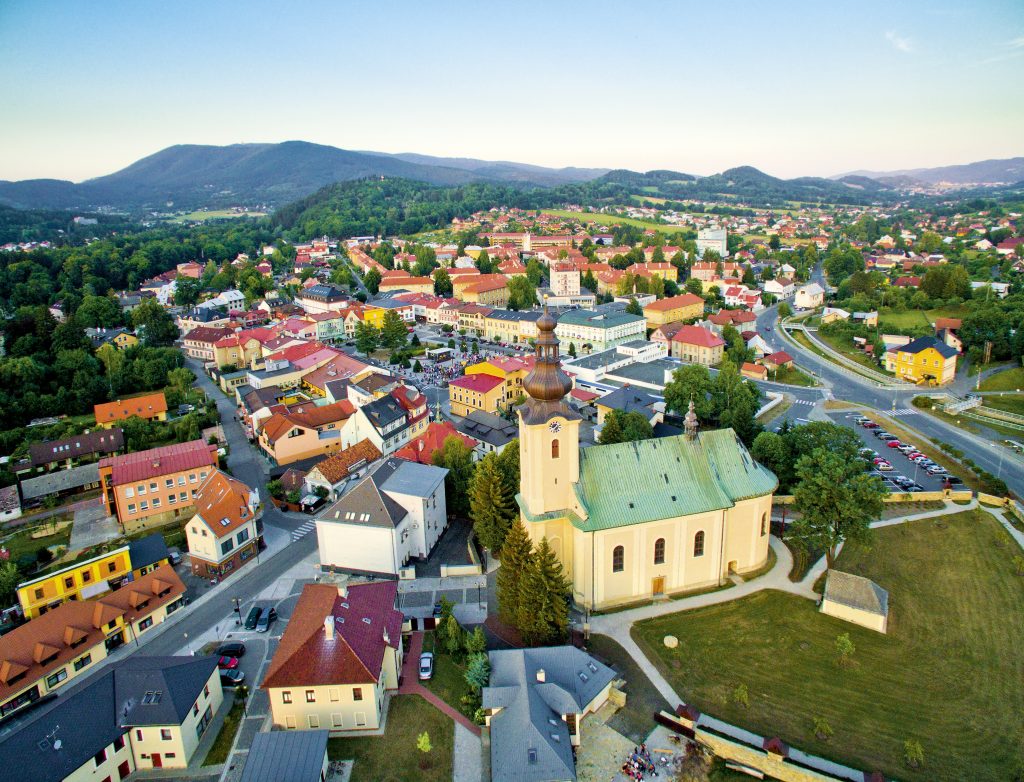By Marine Cornelis
In Rožnov pod Radhoštěm, a town of 17,000 in eastern Czechia, the POWER UP project is piloting a simple but ambitious idea: install rooftop solar panels on a block of 85 social housing flats and share the electricity directly with the residents. These households are among the 9.2% of Czech citizens estimated to live in energy poverty. This pilot offers them locally produced, low-cost power—and a new way to take part in the energy transition.
From civil engineer to energy pioneer
Jan Cieslar had no plans to work in public energy. But seven years ago, his neighbour, a former mayor, nudged him into applying for a new role as the city’s energy manager. “I said yes and passed the test,” Jan recalled. “It was a challenge, something I could work myself up to.”
His main task is managing public buildings, but the POWER UP project allowed him to go further. “What I liked about the project was that we could implement a pilot focusing on energy poverty and show it is possible to save money and support vulnerable people at the same time.”

A block of flats, a city’s commitment
The building is a typical 1970s block. All 85 flats are owned by the municipality and reserved for low-income residents. “It’s one of the buildings with the highest concentration of people in energy poverty in Rožnov,” Jan said.
The city will pay for the installation of PV panels. Households will not cover the upfront costs and will pay only for the electricity they actually use. A survey was sent to each flat explaining the offer, and contracts are now being prepared.
Challenges: legal, institutional and personal
The first hurdle was political. “Why should the city invest if only some citizens benefit?” Jan was asked. He had to show that the project would pay for itself over time, while delivering real savings to households.
Then came the legal headaches. Initially, Czech law required all households to merge their electricity meters: something impossible to arrange. “We couldn’t get that,” Jan said. A breakthrough came in August 2024, when new legislation allowed for energy sharing without such a merger.
Inside city hall, there were tensions too. “My colleagues felt left out,” Jan admitted. “Maybe I should have communicated better.” The building’s facility team would need to take on new tasks. Change is not always welcome.
Why this matters, and what comes next
Rožnov is in a rare position. “We are in the luxurious position of being the only owner of the building,” Jan explained. In most Czech buildings, every flat is owned separately, which makes collective decisions far harder. “We are showing it can be done when one entity takes responsibility.”
Despite delays, Jan is hopeful. Installation should be complete by June 2025, and electricity sharing could start in the summer. “Once the PV is on the roof, it will start working immediately. People will see it. That will motivate them.”
Lessons in leadership and trust
Jan has learned that technical problems are easier than human ones. “The internal processes take the most out of you,” he said. Looking back, he wishes he had built trust earlier with colleagues. “Maybe I should have.”
He also refused to wait. “Quite often I hear, ‘Let’s wait until another city does it first.’ But I’m glad we went for it. We had to do it first, and see what it brings.”
This is not about solar panels. It is about acting before everything is perfect, involving people who are usually left out, and showing what’s possible, even in a small town.
